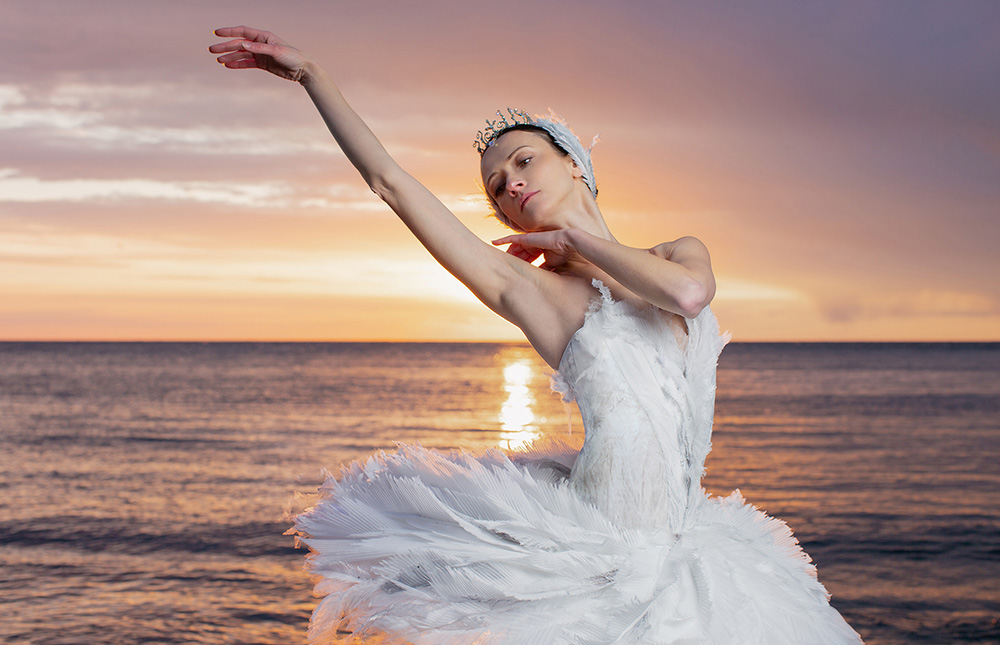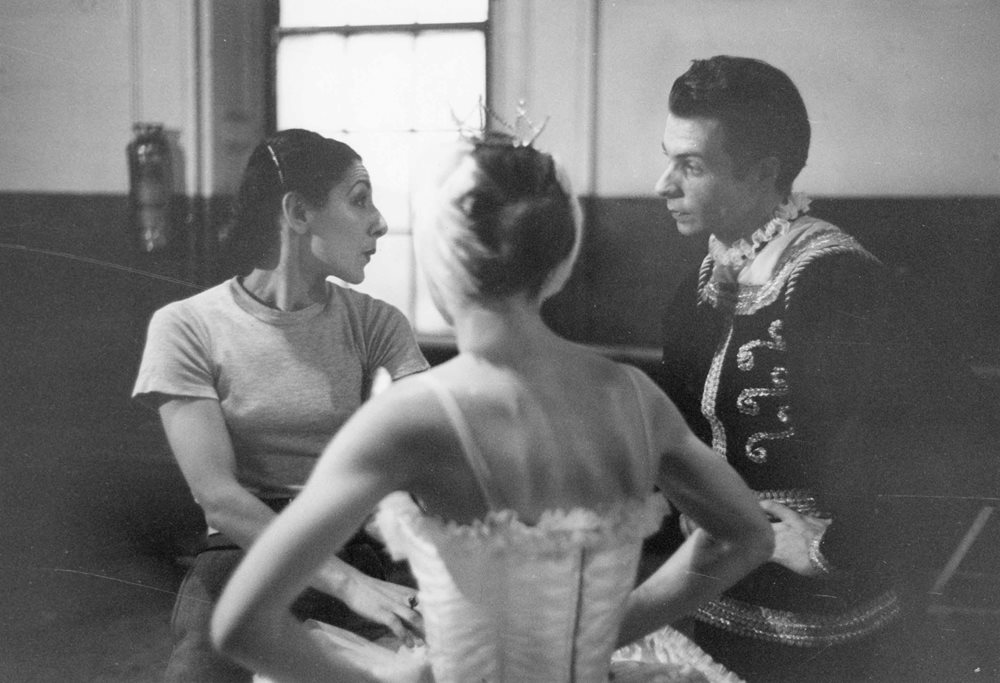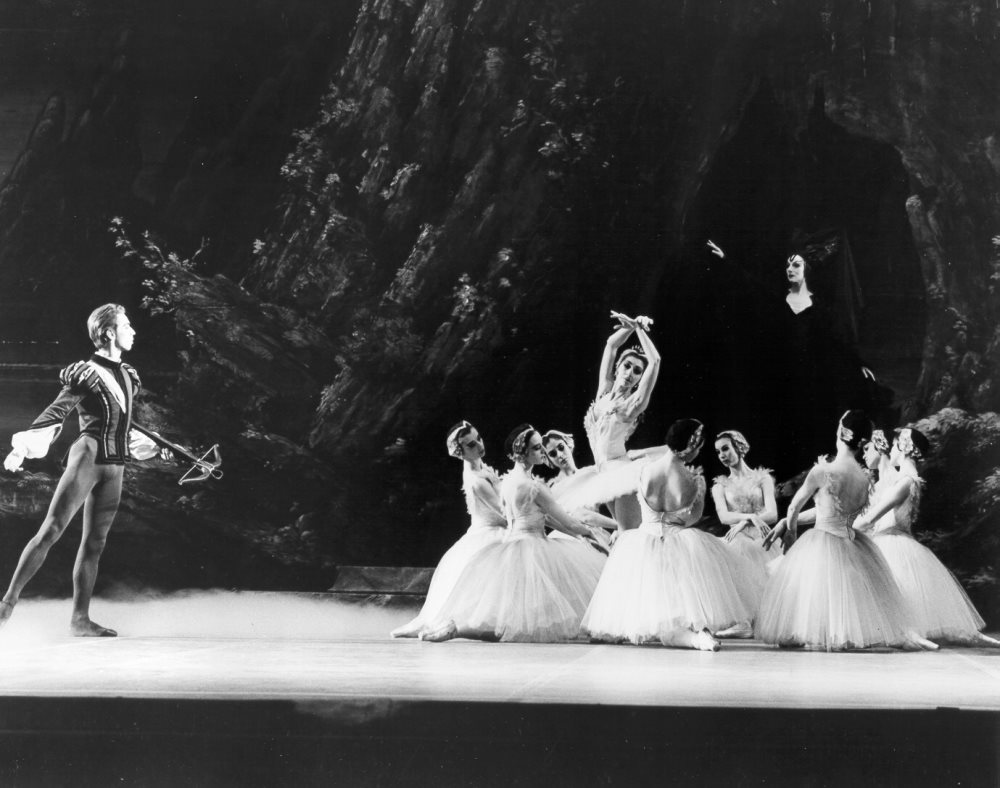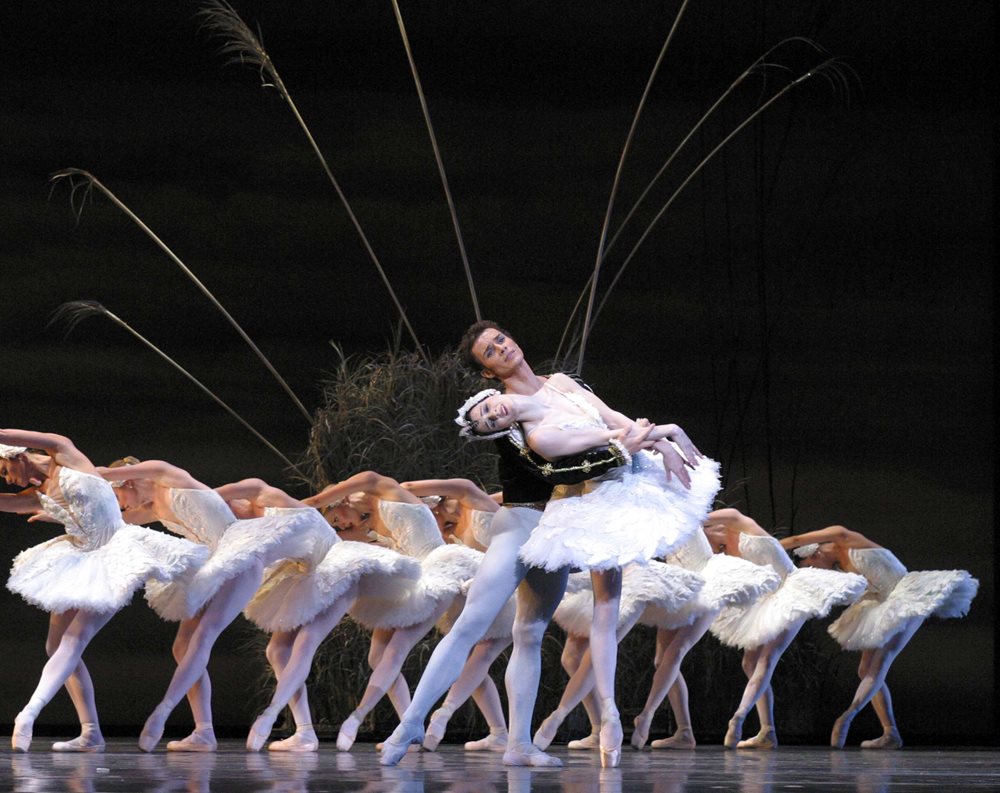Ballet
News+
Swan Lake at The National Ballet of Canada
by John Hart & Caroline Dickie
May 19, 2022

Svetlana Lunkina. Photo by Karolina Kuras.
The National Ballet of Canada has performed three versions of Swan Lake in its history, all of them staged by former Artistic Directors: Celia Franca, Erik Bruhn and James Kudelka. Karen Kain is now poised to join their ranks as she puts her own stamp on the beloved classic.
Celia Franca: 1955
National Ballet Founder and Artistic Director Celia Franca first staged the pas de deux and variations from Act II of Swan Lake, the first lakeside scene, in 1953. Two years later, Franca staged the company’s first full-length production, taking inspiration from versions she had been exposed to in London, England.
Hers was the first full-length version of Swan Lake in Canada, a huge achievement at a time when only a few companies in Europe had the full ballet in their repertoires. The production was a mark of distinction for the young company and an early sign of Franca’s commitment to highlighting classical ballet. Franca opted for the happier ending, the “apotheosis,” which shows Odette and Prince Siegfried united in the afterlife.
Swan Lake was a staple of early touring for the National Ballet and the production took the company to New York City for the first time.
 View Gallery
View Gallery
Erik Bruhn: 1967
When Franca retired her production of Swan Lake, she realized she needed a new version to return the staple of classical ballet to the repertoire. She turned to Erik Bruhn, the Danish danseur noble who Franca had danced with at the Metropolitan Ballet in England in the late 1940s. Bruhn had also recently staged La Sylphide to great success for the National Ballet.
Bruhn’s Swan Lake was a fascinating psychological drama that departed from traditional versions, which proved controversial and ground-breaking. He enhanced the role of Prince Siegfried, whom he occasionally performed, with more dancing and depth, saying he wished to tell the story of the Prince rather than the Swan Queen. He also changed the role of Von Rothbart, the evil sorcerer, to the Black Queen (initially played by Franca). His telling changed the story from a struggle between good and evil to focus on the Prince’s relationships with the women in his life – his mother, the Black Queen, the Swan Queen and the Black Swan – each representing a different form of control or influence. To emphasize the powerful emotion of the story, Bruhn reinstated the tragic ending, with the Prince driven to his death by the swans.
Erik Bruhn served as the National Ballet’s Artistic Director from 1983 to 1986.
 View Gallery
View Gallery
James Kudelka: 1999
James Kudelka’s staging of Swan Lake in 1999 was a darker and more enigmatic take on the classic. The world of Prince Siegfried was depicted in Act I as harsh and brutal, full of toxic masculinity, as the knights danced after returning from a hunt. In contrast, for Siegfried, the world of the swans in Act II was tender and compassionate, offering him solace. For Kudelka, the swans were birds, foregoing altogether the idea of a spell that turned the princess into the Swan Queen Odette.
Odette was an ideal, though unobtainable for Siegfried, and one he spurned for the seductive Odile, a trick of Rothbart’s. As foreshadowed in the prologue, Rothbart gleefully destroys the kingdom. Kudelka had the unique idea to populate Act IV, the second lakeside scene, with black swans who were handmaidens to the evil Rothbart. The betrayed Odette stood out in contrast to the surrounding darkness of Rothbart’s triumph. Kudelka maintained the tragic ending as Siegfried and Rothbart fight and ultimately drown in the lake, leaving Odette alone to mourn.
 View Gallery
View Gallery
Karen Kain: 2022
Artistic Director Emerita Karen Kain performed Bruhn’s Swan Lake throughout her dancing career and she wishes to return to the powerful and emotional love story at the heart of the ballet as well as reinstate some of Bruhn’s unique choreography. Her role as director and stager of this new version is informed by her experiences as a performer, her respect for the classical repertoire as well as a necessary contemporary perspective.
Odette is a strong, adventure-seeking young woman who is captured, along with many others, by the evil Rothbart. As such, Karen wishes to portray the humanity of these women, the bonds they form and the support they offer each other. Prince Siegfried, too, is part of a loving community, including his sisters, friends and beloved tutor. Their love, which could release Odette from her captor, is threatened and ultimately destroyed.
It is a fresh way to look at love, passion and betrayal, thematic concerns in folk tales and myths that have resonated for centuries. Yet at the same time, there are very real concerns from today’s world that inform the story. Karen turned to designer Gabriela Týlešová to bring Swan Lake to life, feeling that she could capture both the fairy tale world of the ballet as well as the darkness that encroaches on our everyday lives.
Swan Lake is onstage June 10 – 26, 2022
Read the Synopsis